第35章 V(8)
Some day I want to talk about my library. It is such a curious collection of old and new books, such a mosaic of learning and fancies and follies, that a glance over it would interest the company. Perhaps I may hereafter give you a talk abut books, but while I am saying a few passing words upon the subject the greatest bibliographical event that ever happened in the book-market of the New World is taking place under our eyes. Here is Mr. Bernard Quaritch just come from his well-known habitat, No. 15 Piccadilly, with such a collection of rare, beautiful, and somewhat expensive volumes as the Western Continent never saw before on the shelves of a bibliopole.
We bookworms are all of us now and then betrayed into an extravagance. The keen tradesmen who tempt us are like the fishermen who dangle a minnow, a frog, or a worm before the perch or pickerel who may be on the lookout for his breakfast. But Mr. Quaritch comes among us like that formidable angler of whom it is said, His hook he baited with a dragon's tail, And sat upon a rock and bobbed for whale.
The two catalogues which herald his coming are themselves interesting literary documents. One can go out with a few shillings in his pocket, and venture among the books of the first of these catalogues without being ashamed to show himself with no larger furnishing of the means for indulging his tastes,--he will find books enough at comparatively modest prices. But if one feels very rich, so rich that it requires a good deal to frighten him, let him take the other catalogue and see how many books he proposes to add to his library at the prices affixed. Here is a Latin Psalter with the Canticles, from the press of Fust and Schoeffer, the second book issued from their press, the second book printed with a date, that date being 1459.
There are only eight copies of this work known to exist; you can have one of them, if so disposed, and if you have change enough in your pocket. Twenty-six thousand two hundred and fifty dollars will make you the happy owner of this precious volume. If this is more than you want to pay, you can have the Gold Gospels of Henry VIII., on purple vellum, for about half the money. There are pages on pages of titles of works any one of which would be a snug little property if turned into money at its catalogue price.
Why will not our multimillionaires look over this catalogue of Mr. Quaritch, and detain some of its treasures on this side of the Atlantic for some of our public libraries? We decant the choicest wines of Europe into our cellars; we ought to be always decanting the precious treasures of her libraries and galleries into our own, as we have opportunity and means. As to the means, there are so many rich people who hardly know what to do with their money that it is well to suggest to them any new useful end to which their superfluity may contribute. I am not in alliance with Mr. Quaritch; in fact, I am afraid of him, for if I stayed a single hour in his library, where I never was but once, and then for fifteen minutes only, I should leave it so much poorer than I entered it that I should be reminded of the picture in the titlepage of Fuller's "Historie of the Holy Warre:
"We went out full. We returned empty."
--After the teacups were all emptied, the card containing Number Seven's abridged history of two worlds, this and the next, was handed round.
This was all it held:
After all had looked at it, it was passed back to me. "Let The Dictator interpret it," they all said.
This is what I announced as my interpretation:
Two worlds, the higher and the lower, separated by the thinnest of partitions. The lower world is that of questions; the upper world is that of answers. Endless doubt and unrest here below; wondering, admiring, adoring certainty above. --Am I not right?
"You are right," answered Number Seven solemnly. "That is my revelation."
The following poem was found in the sugar-bowl.
I read it to the company. There was much whispering and there were many conjectures as to its authorship, but every Teacup looked innocent, and we separated each with his or her private conviction.
I had mine, but I will not mention it.
THE ROSE AND THE FERN.
Lady, life's sweetest lesson wouldst thou learn, Come thou with me to Love's enchanted bower:
High overhead the trellised roses burn;
Beneath thy feet behold the feathery fern, A leaf without a flower.
What though the rose leaves fall? They still are sweet, And have been lovely in their beauteous prime, While the bare frond seems ever to repeat, "For us no bud, no blossom, wakes to greet The joyous flowering time!"
Heed thou the lesson. Life has leaves to tread And flowers to cherish; summer round thee glows;
Wait not till autumn's fading robes are shed, But while its petals still are burning red Gather life's full-blown rose!